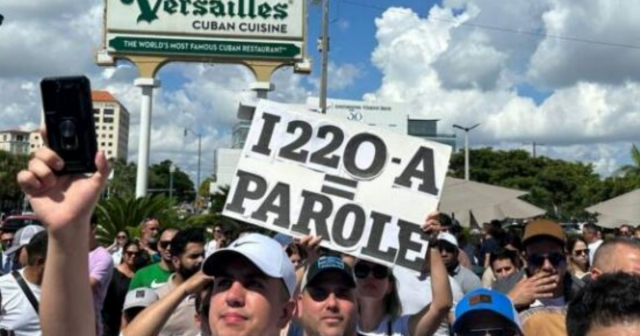He U.S. government announced changes to the application selection process humanitarian parole with financial sponsor, combining the random approval of cases with attention to requests with longer waiting times.
“About the change to the parole process, what we are doing is recognizing that the demand in the region has been enormous for these parole programs and to maximize the hope that people who could be elected will have, we are going to implement a process where half Of the appointments that are available each day, that is, of the thousand slots that are processed every day, 500 or so will be processed at random in a lottery that may benefit any person waiting to be chosen in this process, and The other half of the appointments will be processed in the order in which the applications were received,” he explained. Blas Núñez-Neto, Undersecretary of Border and Immigration Policy of the Department of Homeland Security (DHS).
The official pointed out that the modification in the selection process also seeks to “guarantee that people who have been waiting know that they will eventually have their application confirmed.”
Núñez-Neto announced the news about the processing of humanitarian parole during a conference call this Thursday on the eve of the suspension of the Title 42 health order on the southern border. The measure will benefit participants in the program for people from Cuba, Nicaragua, Venezuela and Haiti that has been operating since January 6.
In essence, half of the places will continue to be awarded at random between the four participating nationalities. The other half will be granted based on a review of pending cases in the order in which they were registered since January.
The restructuring of the selection process must begin in the coming days and constitutes a response to the numerous complaints from participants about excessive delays in approving cases. Many people, including a majority of Cuban applicants, have criticized the extension of granting travel permits, despite the fact that some of the requests have already served more than 120 days.
"For me it is an important improvement in the program," he told CyberCuba lawyer Willy Allen. "I am satisfied because the government has admitted that it was a mistake to start the selection in an arbitrary and random way, and because it will be corrected."
Allen considered the rectification of the selection process as a positive development and said he hopes that the program will continue to operate in a more efficient manner from now on.
The processing of cases is carried out by officials of the Bureau of Immigration and Citizenship (USCIS), but once approval is granted, it is up to Customs and Border Protection (CBP) to extend humanitarian parole or not to the traveler to enter the United States.
According to DHS statistics shared with journalist Daniel Benítez, More than 120 thousand people have arrived in the United States as beneficiaries of the humanitarian parole program until the end of April. The program aims to deliver about 30,000 monthly permits to enter the United States, which has been exceeded.
Of the four groups benefited from the program, the Cubans have already received more than 24 thousand travel approvals and about 22 thousand of them have managed to enter with parole.
Of the rest of the nationalities, Venezuelans have received more than 46 thousand approvals and about 38 thousand have managed to reach the United States; Haitians with 39 thousand (29 thousand); and the Nicaraguans with 19 thousand (13 thousand).
Participants in the immigration program woke up alarmed this Friday after the order of a federal judge in Florida blocked at the last minute on Thursday a temporary decision by the DHS to allow some immigrants to enter through the border with a parole for a limited time while They wait to be prosecuted.
But the judge's order T. Kent Wetherell II, issued following a motion by the Florida State Attorney, Ashley Moody, was referring to the parole situation on the eve of the expiration of the Title 42 health order, not to the humanitarian parole program.
The other latent concern about humanitarian parole is a Lawsuit filed in Texas court by 20 Republican states to delete it. The litigation will go to trial next June 15.
Allen believes that a decision on whether to remain on parole should not come until two months after the conclusion of the trial in Texas, and it is likely that any result will be appealed to a higher court.
“People who have their applications in process should not be affected,” said the lawyer. “There is no reason to torment yourself for now.”
What do you think?
SEE COMMENTS (2)Filed in:
